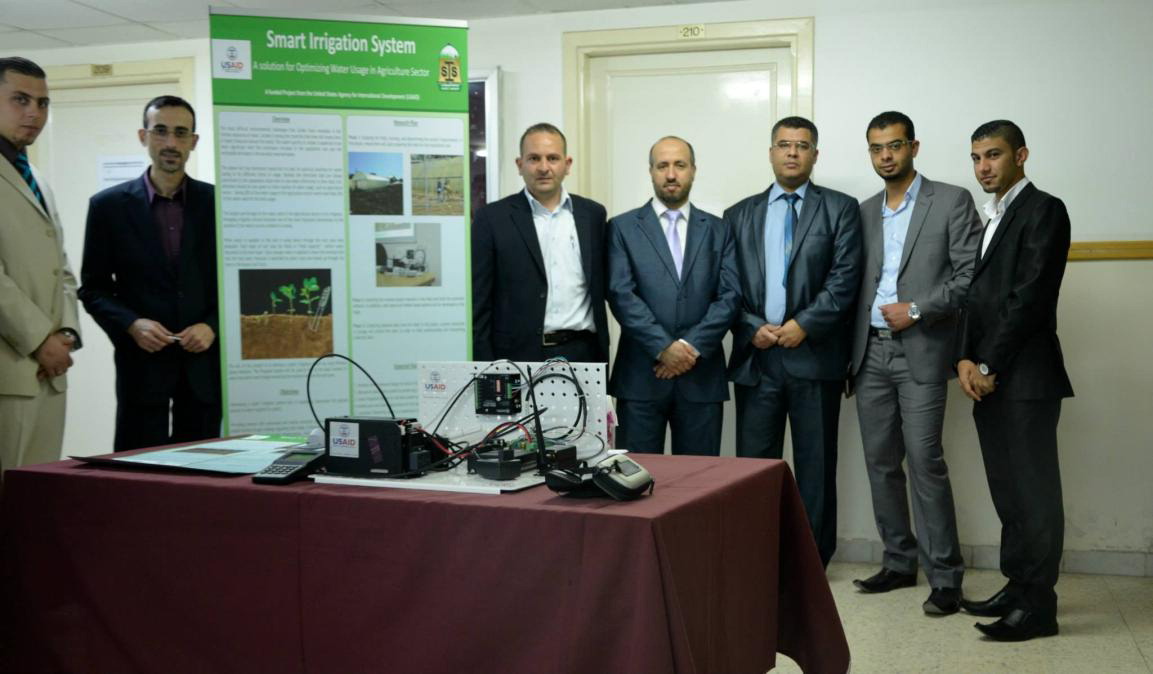The team presented five research papers at international conferences based on their results, focusing on integration of wireless sensor networks with cloud computing infrastructure and concurrency issues that arise as a result of simultaneous interactions among different software components. The papers help support basic technical solutions to the smart irrigation process in Jordan. To further disseminate their work and promote linkages with other PEER-supported researchers, in April 2015 Dr. Samarah and his group also organized the second Jordanian PEER Science workshop jointly with another PEER team from the Jordan University of Science and Technology. As for capacity building, the PEER project provided research opportunities and training for ten undergraduates and three Master’s students, and the researchers designed a new syllabus for a special topics course based on Web services created during the lifetime of the project. The course focuses on creating Web services based on mobile applications. The infrastructure at Yarmouk University was also enhanced thanks to PEER-funded equipment, including a new greenhouse, computers, software, and the wireless sensors and data loggers used in the research.
PublicationsSamer Samarah. 2015. A Data Predication Model for Integrating Wireless Sensor Networks and Cloud Computing.
Procedia Computer Science 52, 1141-1146.
https://doi.org/10.1016/j.procs.2015.05.148 Mohammed Gh. Al Zamil. 2015. Verifying Smart Sensory Systems on Cloud Computing Frameworks.
Procedia Computer Science 52, 1126-1132.
https://doi.org/10.1016/j.procs.2015.05.130 Samer Samarah and Mohammed Al Zamil. 2014. The Application of Wireless Sensor Smart Irrigation Systems in Jordan: Case Study. In
Proceedings of ICNGCCT 2014, Dubai, UAE.
Mohammed Al Zamil and Samer Samarah. 2014. The Application of Semantic-based Classification on Big Data. In
Proceedings of the 5th International Conference on Information and Communication Systems (ICICS 2014), Jordan.
Mohammed Gh. Al Zamil and Samer Samarah. 2014. Application of Design for Verification to Smart Sensory Systems. In
Proceedings of the Qatar Foundation Annual Research Conference, Issue 1, November 2014, Volume 2014, ITPP0366.
https://doi.org/10.5339/qfarc.2014.ITPP0366 



